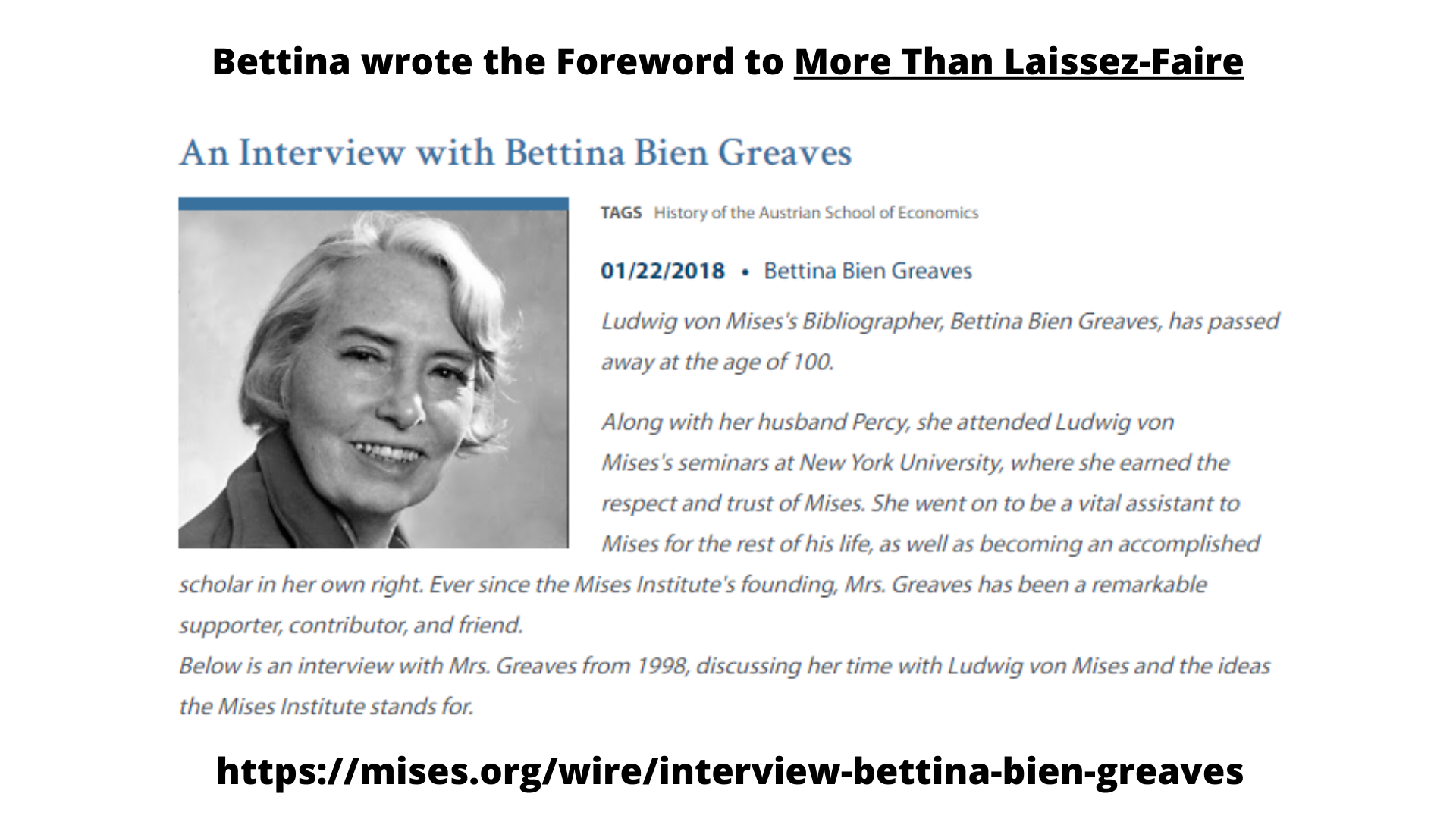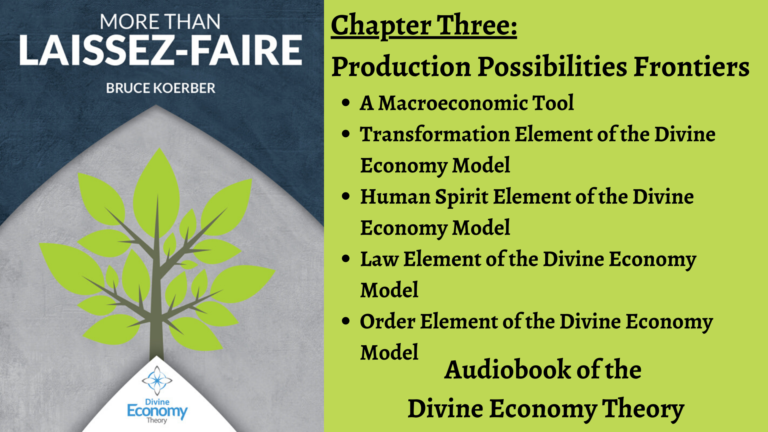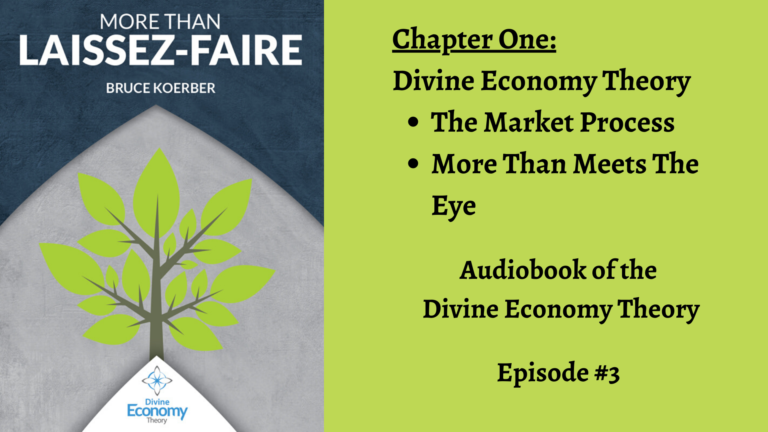This is an economic audiobook that will take you on a journey. Even though it is an economic journey it is really a wondrous exploration of human action and human valuations.

Here’s the video recording of this session of the audiobook. Below is the transcript.

Dedicated to:

Foreword

Most high school and college textbooks describe the nation’s economy as a huge agglomeration of goods and services, vast piles of food, clothing, coal mines, factories, computers, agricultural products, kitchen appliances, TVs, automobiles, computers, planes, and so on ad infinitum. But these physical things are not the market economy as such. They are what people produce while working and trading in the market economy.
Bruce Koerber explains that the market economy is not a physical thing; rather it is a process, a human institution. It is at the same time the consequence of human actions and a shaper of human actors, transforming them into cooperative social human beings. The economy is the outgrowth of the purposive actions and choices of men. As such, it is manmade, but it is not purposively planned. As men meet, cooperate and have dealings with one another, markets evolve, as do societies and civilizations.
Koerber shows how the market economy develops. It is a dynamic process. Market participants are ego-driven; they act on the basis of their subjective values. Their subjective values are expressed in prices. Prices furnish knowledge about the wants and needs of other market participants. As traders turned from barter to using a medium of exchange, money, trading became easier. Moreover, money prices furnish market participants with information, knowledge, and the tools for calculation. Thus the market disseminates and coordinates the activities of market participants.
As Koerber explains, all men are driven by the human spirit to try to improve their situation. Individuals can best improve their respective situations when they are free to act. Therefore, the human spirit should be free. The right of individuals to private property must be protected so that individuals will save, accumulate capital and invest.
If entrepreneurs are free to look for and to discover opportunities they tend to improve economic productivity. In the process, the free market economy develops economic principles and fosters law, order, justice and harmonious relations among all participants. Thus, the path to economic progress, peace, prosperity and a more advanced civilization is through the free market economy. On the other hand, when outside interventions interfere with the voluntary activities of individuals in the market economy, especially by wars and inflation, they violate property rights, disrupt the market’s harmonious operations, distort prices and production, cause the boom/bust business cycles, and hamper economic progress.
For those who appreciate visual presentations of economic relationships, Koerber’s book is sprinkled throughout with diagrams illustrating the influence on economic production of property rights, capital structure, prices, entrepreneurship, competition, profit and loss, etc.
Koerber’s book explains that the free market economy is guided by voluntary actions. It is “in accord with the will of God.” It leads to greater social cooperation, peace, increased prosperity and a more advanced civilization. It awakens the human spirit to its full potentiality. Koerber calls it the “divine economy.”
Bettina Bien Greaves [1.]
February 2008
- Formerly with the Foundation for Economic Education, Irvington-on-Hudson,
NY; attended Mises’ NYU graduate seminar on economic theory (1951–1969); compiled a 2-volume annotated bibliography of Mises’ works, published by FEE in 1993 and 1995; and now editing the new editions of Mises’ several works being published by Liberty Fund, Indianapolis, IN. The latest volume in their series is Human Action (2007).
Read this interview with Bettina Greaves.
Check out “More Than Laissez-Faire” on Amazon.
Introduction
Economic Vim And Verve
Imbibing Knowledge, New and Old
Preface
As we walked along the path that took us into the forest we came upon a clearing and in the middle of the clearing was a fire burning in a fire pit. Drawn to it we approached this ‘life force’ with heartfelt interest, pausing reflectively and feeling inspired; suddenly resolved to try to make sense out of this world of ours. It was this resolve, this new quest, that was exceptional and it exhibited in us a strong sense of vitality.
Apparently we must have imbibed a spirit of enthusiasm from exposure to this ‘life force’ energy. With conviction we now determinedly realize that it is time to explore reality further. Filled with enthusiasm, and combining it with knowledge and wisdom, we take it upon ourselves to transform our quest into a journey. It is along this journey where new ideas are expressed and encapsulated into theory.
The Discovery
Our journey is a journey of discovery. What is remarkable is that without even taking a step we discover wonders that are awesome.
The economy is everywhere. It is all around us and it is in us. Its pervasiveness is remarkable. Additionally we find great potency and exuberant vitality at each point where the economy becomes manifest. To act is to bring into existence something new which coalesces with everything else that already exists. This powerful force is part of human life.
And yet few of us realize what is at our fingertips. With what enthusiasm should we embrace this inherent power that is our birthright?
If we can get past being overwhelmed by such a thought then we can truly begin to appreciate this creative force. It is the mirror image of the creative force that brings together the letter b and the letter e to form the word ‘be’ and it is!
The Cycle
The journey is part of our evolution and it is part of our maturity. What we discover during the journey is both the old and the new. From our vantage point it is the past that gives us footing, and it is the new reaches we make that take us towards the summit. But this perspective—the recognition that we are at a vantage point—is a sign of the times. We are at a special point in the cycle of human affairs.
The fact that the divine economy theory is now discovered is evidence that we are in a new cycle. At the same time this new cycle has a nature about it that requires a new theory. Reciprocally then, the discovery of the divine economy theory and the need for the divine economy theory are both important in this cycle, in this particular era of human history.
Here’s the video recording of this session of the audiobook.
If you want to be notified at the time when the audiobook is Live on Facebook sign up here.




